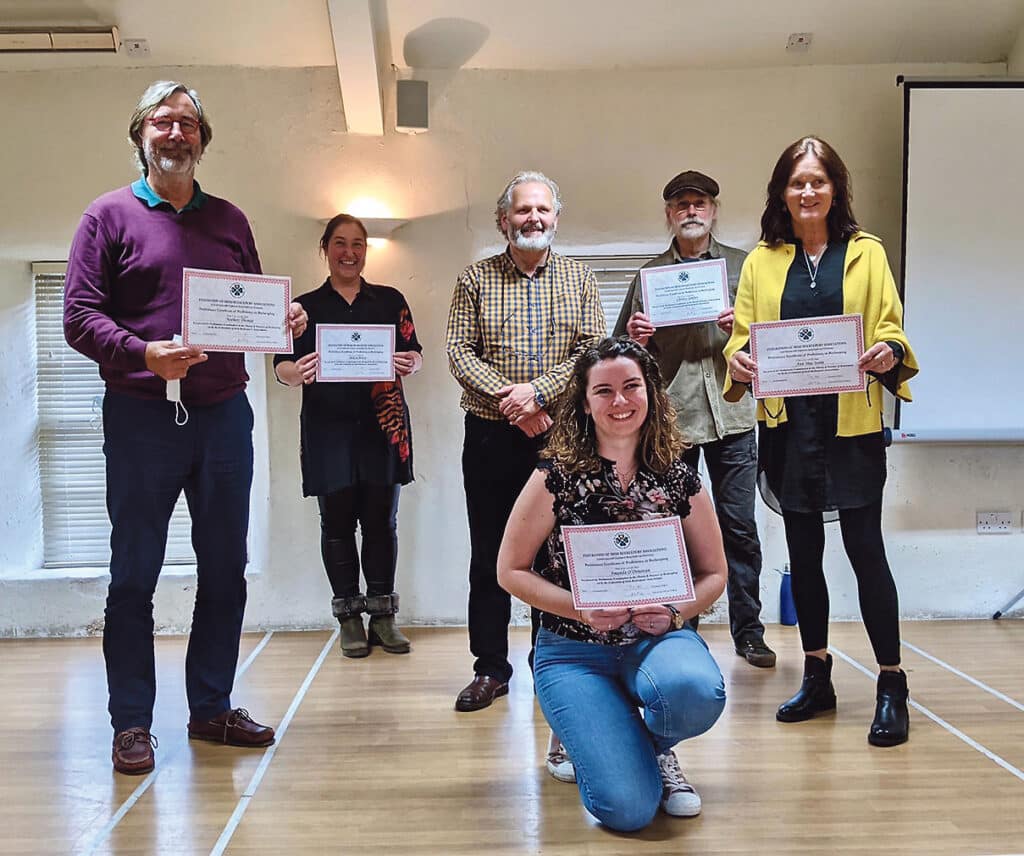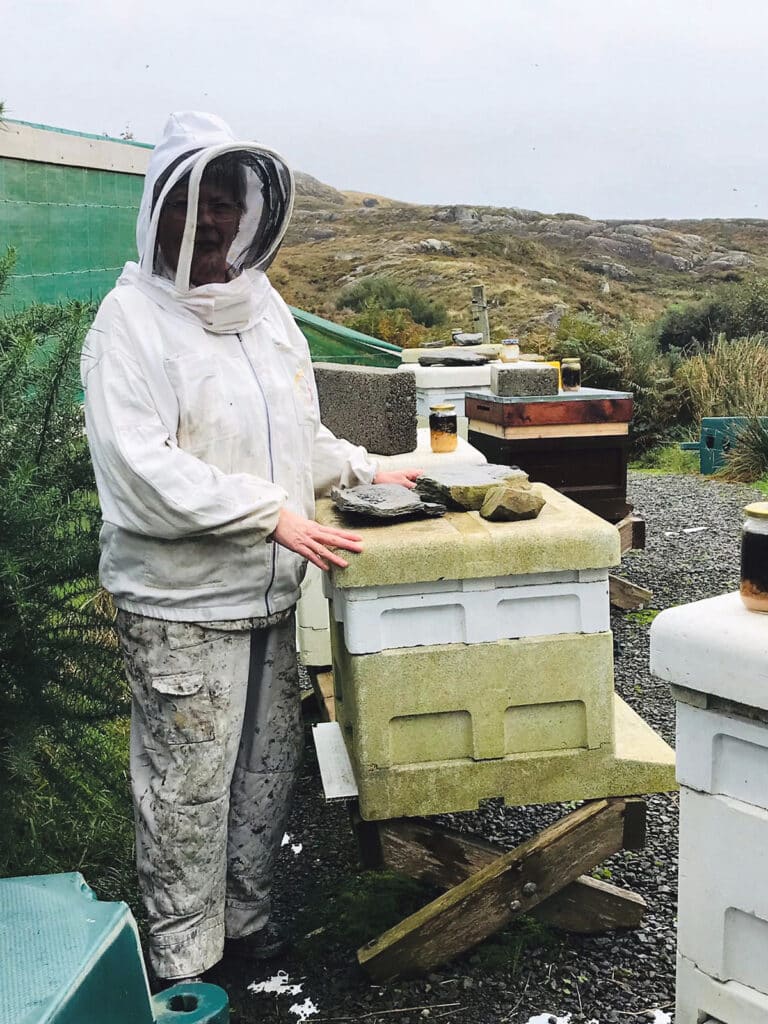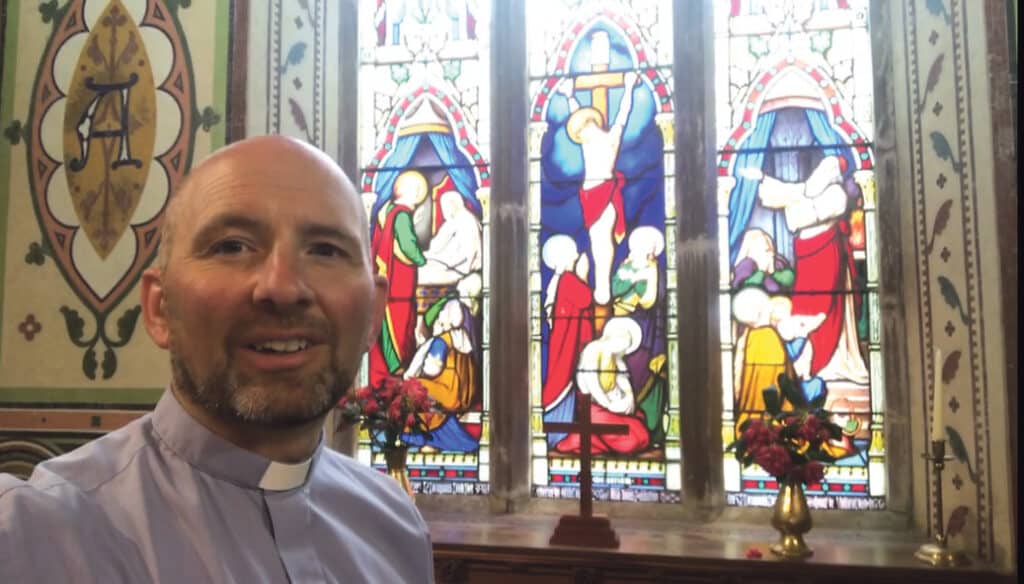As awareness grows about the importance of bees, West Cork’s newest beekeepers’ group, the Fastnet Area Beekeepers Association (FABKA), celebrates the successful accreditation of it’s first students who, in October, received their preliminary exam certificates under the auspices of The Federation of Irish Beekeepers Associations (FIBKA), the largest organisation of beekeeping associations in Ireland.

Beekeeper students (l-r) Norbert Themar, Mileen Preece, Gus McCoy Fibka Secretary, Chris Sanders, Ann MacSeoin with Amanda O’Donovan in front. 
Beekeeper Mairead Love
Beekeeper and FABKA Chairperson Mairead Love and her husband Michael have a number of hives at their home near Goleen and were the driving force behind this new beekeepers’ association, which ran its first course online this year. Mairead says its success has been the culmination of a lot of hard work.
“Years ago, a person was a keeper of bees, with one or two colonies at the end of the garden. Those days are over,” she stresses. “To keep your bees alive you really do need to know what you’re doing and network with other beekeeepers, which is why joining an association like FABKA is so important.”
The immediate benefit of joining FABKA is that you’ll meet fellow beekeepers. All members are issued with a very informative monthly magazine ‘An Beachaire’ and live or online demonstrations and workshops are held periodically through the year (restrictions-permitting). Once you are a member of FABKA you can also join any other FIBKA Association for a small sum and avail of what they are offering. For the more academic, there is an exam structure available.
“It’s really important to do an introductory course before getting your own hive, as there is a lot involved in keeping bees,” says Mairead. It’s very demoralising to see your bees dying within a season or a year.”
Mairead’s late father Finbarr Dineen was a prolific beekeeper so bees have been apart of her life since early childhood. She is currently studying for a Diploma in Scientific Studies (Apiculture) – Bees and Beekeeping, a two-year course at NUIG run in association FIBKA.
Mairead is also a member of the Native Irish Honey Bee Society, an environmental conservation society formed to help support Native Irish Honey Bee (Apis mellifera) throughout the island of Ireland.
“I’m still learning and, after most lectures or courses I attend, I realise that I must learn more,” says the beekeeper.
“Years ago bees weren’t facing the problems we have today,” she continues. The increased usage of insecticides and pesticides in intensive farming, the Varroa mite, which can wipe out entire colonies, the Asian hornet which, if it’s imported into Ireland will be a massive threat and, in my experience, the greatest killer of all – a bad beekeeper.
The good news though she says is that “research is showing the native Irish bee is surviving in the wild without human intervention.”
Mairead says that nowadays beginners and all levels of beekeepers can take heart that their small efforts are worthy and are creating a real awareness as to the importance of preserving life into the future. “There is so much to be gained from caring for and learning about these fascinating creatures.”
FABKA will run another beginners (intensive course) starting in early March 2022.
If you are interested in learning more and becoming a beekeeper join the association’s training course at
fastnetareabeekeepersassociation.net.







